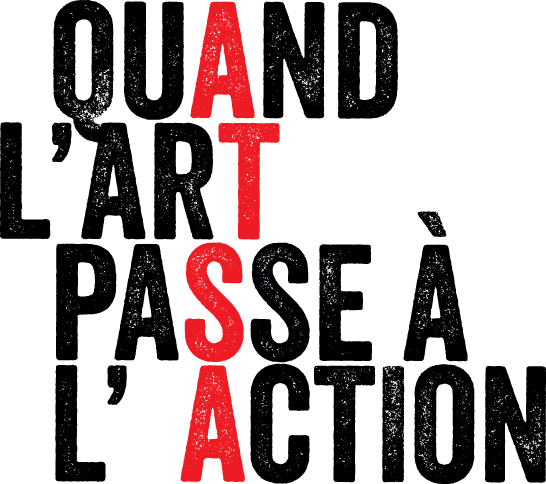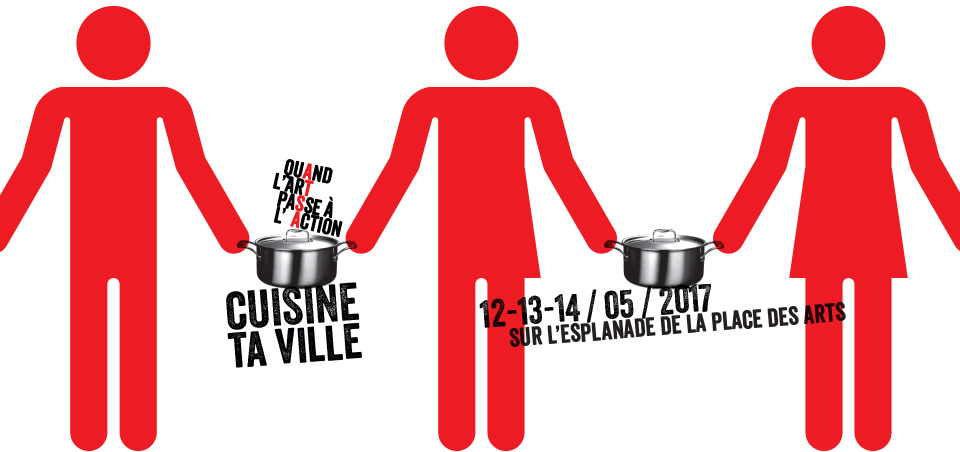AROUND THE SOUP | Heart and head | ARTISTIC PROGRAMMING
KIDS CORNER | THE HISTORY COURSE! | SCHEDULE
The LE CŒUR ET LA TÊTE series offers 25 opportunities for encounter and reflection thanks to the TESTIMONIALS, often full of humour and always compelling, of the refugees who share their life experiences, and to the presentations, delived in the form of SEMINARS, by experts and case workers in the field who know the challenges of the demanding refugee process. Several important themes—peace, integration, francization, employment, isolation, trauma—are broached and discussed.
Each encounter is an act of openness to the Other, in order to stitch a better social fabric for our city. Some of the testimonials will be accompanied with lectures, songs, photos, etc.
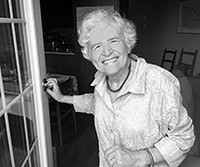 AGLAJA WOJCIECHOWSKI
AGLAJA WOJCIECHOWSKI
Saturday 2pm
Aglaja Wojciechowski was born in Switzerland and has lived in Trois-Rivières for 60 years. Aged 90, she continues telling her story and that of her Polish husband, a World War II survivor. His journey began with the invasion of Poland on September 1, 1939. Despite Resistance efforts against the Russian army to the east and the German army to the west, Poland finally capitulated. Zygmunt Wojciechowski became a P.O.W. and was transferred from one stalag to another, before one day escaping by a garden door inadvertently left open. He crossed through Germany, Belgium, France, and Franco's Spain, where he was caught. A hunger strike by prisoners attracted the attention of the Red Cross, which proceeded to dismantle the Spanish camp. Pretending to be Canadian, Zygmunt joined the British forces. After the war, he met Aglaja while both were studying in Dublin. Some years later, they decided to emigrate to Canada.
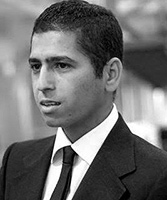 AMINE SALAH
AMINE SALAH
Sunday 3pm
Mr. Salah is a business intelligence analyst with several years' experience in innovation and training, and achievements in a variety of fields, including business intelligence and events. A social entrepreneur, he has been working actively in recent years for the development and advancement of Canada's Maghrebian community. He is president of the Association Mont-Algérie, an inclusive and entrepreneurial leadership incubator which he co-founded in 2012 in reaction to major problems faced by Montreal's Maghrebian community, such as high unemployment (despite a university education for many), radicalization, and the lack of political engagement and representation.
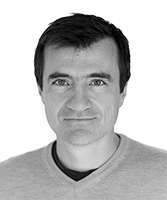 CARL BOUCHARD
CARL BOUCHARD
Friday 9pm
As a professor at Université de Montréal, I teach a course on the history of pacifism, the only one of its kind in Québec. How has the way we perceive peace changed over the past two centuries, through the 19th century's intellectual enlightenment and scientific advancement and the subsequent terror of two world wars that cast a shadow over the following century? How does pacifism come to grips with the problem of human violence? In my lecture, I wish to present some of the main ideas that inform the desire, in my course, to view peace and pacifism through a historic lens, such as the notions of “righteous war” and of positive and negative peace.
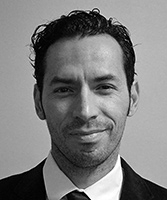 CARLOS ROLDAN
CARLOS ROLDAN
Friday 7pm
An activist lawyer devoted to the cause of human rights, Carlos Roldan focuses on humanitarian actions and community involvement in his native Colombia. He was forced to flee Colombia during an armed conflict, and settled in Montreal in 2009, where he continues his commitment to the defence of human rights in Québec. In 2014, Carlos obtained a Master's in International Law from Université de Montréal. His thesis dealt with international instruments for justice in Colombia, a country experiencing armed conflict. Currently, Carlos works for a Canadian immigration law firm.
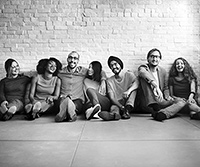 CHARLOTTE GUERLOTTÉ ET DÉBORAH GRAUSEM
CHARLOTTE GUERLOTTÉ ET DÉBORAH GRAUSEM
Sunday 2:30pm
Intercultural pairing: explanations and impacts (presentation of an action research project)
Intercultural pairing brings together new arrivals and members of the host society for social and amicable purposes. In Québec, some 25 community organizations run pairing programs. How do these programs function and what results do they produce?
The aims of this action research on intercultural pairing in Québec were to document current practices and to measure the impacts of pairing in Québec organizations. Interviews were conducted with case workers and participants in 10 organizations. The research focused on the steps involved in pairing, program impacts on the paired parties, and the challenges inherent in maintaining programs and in the relationships between the paired parties.
![]()
By: Charlotte Guerlotté (research officer at the Table de concertation des organismes au service des personnes réfugiées et immigrantes (TCRI), with a Master's in Anthropology, Université de Montréal) and Déborah Grausem (pairing officer at the TCRI)
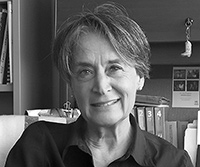 DENISE OTIS
DENISE OTIS
Friday 7:30 p.m.
Myth and reality: a conversation with Denise Otis on international protection in Canada.
Denise Otis works in the Montreal office of the United Nations High Commissioner for Refugees as an advisor on refugee protection in Canada. To shed light on the refugee experience, she will discuss and take questions on the myths, misperceptions and realities surrounding the plight of refugees. Just who are the refugees seeking protection in Canada? Why and how do they come here?
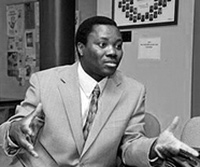 FABIEN CISHAHAYO
FABIEN CISHAHAYO
Friday 8:30pm
Dire l'exil : tracer péniblement son chemin, entre la terre des nôtres et la terre des autres (Tales of exile: navigating one's way through hardship, from one's homeland to the land of others). Fabien is a lecturer at Université de Montréal. Born in Burundi, he arrived in Canada in January 1993. He holds a PhD in Communication from Université de Montréal and specializes in international development as it pertains to information and communication technology (ICT). Fabien is equally passionate about issues related to migration and intercultural communication. He is a part-time teacher of French as a second language to candidate officers at the Canadian Armed Forces Language School at the Saint-Jean-sur-Richelieu detachment. Fabien Cishahayo maintains an active presence in traditional media and social media, and is the author of the book Liberté, je crie ton nom, published in 2005 by Éditions de l’Intuition.
GRACIA BELOUNE
Saturday 11a.m.
Gracia Beyloune and her husband, George Deeb, recently arrived in Montreal as refugees. They will talk about what forced them to flee Syria, what their homeland now means to them, their new life in Montreal, the francization process, and more.
 HICHAM Khanafer ET CONVER-STATION
HICHAM Khanafer ET CONVER-STATION
Saturday 5 p.m. and Sunday 4 p.m.
Conver-station FM is a project that saw the light of day thanks to funding from Multiculturalism Canada at the Canadian Council for Refugees. Support for this Montreal-based initiative is provided by the Centre social d’aide aux immigrants.
Four new arrivals aged 16 to 24, who sought and found refuge in Québec, delivered testimonials on the radio and before elected officials regarding the difficulties they have encountered in their host society. The project's mission is to get new arrivals involved in their new society and to show them that they have the wherewithal to succeed here.
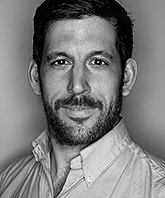 JONATHAN DURAND
JONATHAN DURAND
Saturday 5:30
Jonathan is a Montréal-based documentary director, cameraperson, and editor. He has spent the last several years researching and filming a film about his family, who were Polish refugees in East Africa during the Second World War. The film is called "Memory Is Our Homeland" and will be released this fall.
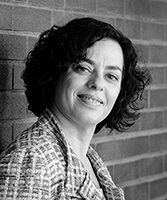 KENZA BENNIS
KENZA BENNIS
Saturday 1:30pm
Kenza Bennis has been a journalist for 20 years. A native of Morocco, she co-founded the magazine Femmes du Maroc, which advocates for more rights for Moroccan women. After settling in Québec in 1998, she was the society-page editor for the magazine Elle Québec for several years. Today, she works as an independent reporter and covers a variety of topical issues and social themes. Kenza has just recently published Les monologues du voile (Robert Laffont), an essay on Québec's Muslim women who wear a veil and the public perception of their choice.
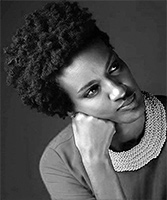 KETTY NIVYABANDI
KETTY NIVYABANDI
Saturday 12 (noon)
A socially engaged poet and author, Ketty Nivyabandi actively promotes human rights and the rule of law in Burundi. In May 2015, after the third candidacy of President Nkurunziza, she organized peaceful women's protests in the capital, which met with brutal repression by the national police force. As a result of the severe repression of dissidents in her country, she was forced to flee Burundi.
Today, as a refugee in Canada, she continues to raise international awareness of the massive violation of human rights in Burundi, particularly against women. An advocate of non-violent activism, Ketty is also an ambassador for “Enfants du Pays” and a founding member of the Mouvement des Femmes et Filles pour la Paix et la Sécurité au Burundi.
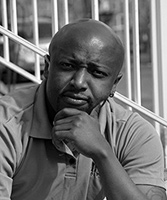 LÉONCE SEKAMANA
LÉONCE SEKAMANA
Friday 5:30pm and Sunday 12h (noon)
A survivor of the infamous Rwandan genocide, Léonce Sekamana left his native country in the hopes of forgetting the trauma of his youth and of mourning the loss of his family. He went on to become an Olympic swimmer, representing Rwanda at the 2004 Summer Olympics in Athens. He is deeply involved with various organizations of the Rwandan diaspora, and is a budding songwriter. He believes in expressing daily gratitude for being alive.
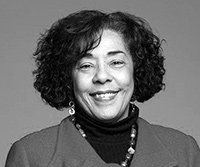 MARJORIE VILLEFRANCE
MARJORIE VILLEFRANCE
Sunday 2:30 p.m.
Québec and Haïti: how did this story all begin?
July 1964. I arrived in Québec all alone. In my hand, a small paper note on which was written the name of a woman who was to greet me at the airport. I knew nothing of this country. And I knew even less that I would spend all my life here.
In 1966, Haiti made it onto Immigration Canada's radar for the first time. The first wave of immigration from 1967 to 1977 is referred to as the brain drain, a way of describing the exodus of thousands of professionals fleeing Haiti's repressive dictatorial regime. In the 70s, the exodus of workers brought a new category of Haitian immigrants. Today, 105,500 persons born in Haiti live in Québec. They are all contributing to the same society and one may surmise theirs will be an increasingly influential role within it. For now, the cultural, social and economic integration of three generations of Quebecers of Haitian origin remains their core concern.
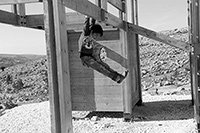 MARYA ZARIF, JE VEUX JOUER
MARYA ZARIF, JE VEUX JOUER
Sunday 1:30pm
Marya Zarif, co-founder of La maison de la Syrie and of the Fondation Je veux jouer, speaks about the mission of the latter organization, which is to design and build playgrounds in the refugee and displaced persons camps of Syria. Emphasizing the power of joy over war, the Fondation and its partners consider young Syrian refugees first and foremost as children, and also as the guarantors of a peaceful future in the region. Despite the deplorable living conditions, the aim is to provide the youth with parcels of childhood where they can play, where they can dream, and where they may grow as humans in spite of the odds, and do so in dignity.
https://www.jeveuxjouersyrie.org
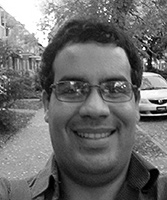 MOYAD ALMARZOKI
MOYAD ALMARZOKI
Sunday 2:30 p.m.
My name is Moyad Almarzoki. I am a Syrian refugee in love with the French language. I am a graduate in English literature, and employed as an English teacher, a translator and an interpreter. I came to Canada 15 months ago, first arriving in Saskatoon on February 11, 2016, then settling down in Montreal one month later. I was forced to flee the war in my country to avoid having to fight in the army. I am a conscientious objector! I had to leave behind my mother and my five sisters...
I have learned French intensively since my 15 months here, and that has been a big part of my integration in Québec society.
For Cuisine ta ville, I will be greeting participating families at the “kitchen party” and will gladly share my experiences with you in the tent. It's my turn to welcome you!
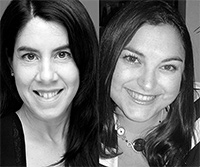 Myra Deraîche et Tania Longpré
Myra Deraîche et Tania Longpré
Sunday 1 p.m.
Intercultural pairing, for a successful francization and integration
While francization courses are provided to new arrivals to Québec, some experts in the field have observed that immigrants benefit from too few opportunities to practice their French and to meet French-speaking Quebecers. To this end, projects for intercultural pairing are being set up by certain organizations. Such pairings involve meetings between Francophones and new arrivals to favour intercultural contact and learning about Québec culture. Two professors who teach French to immigrants will share their professional experiences and their intercultural pairing projects. Myra works at UQAM's Language School, and Tania at the Commission scolaire de Montréal.
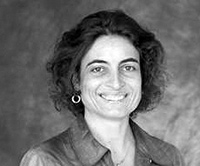 NADIA EL-MABROUK
NADIA EL-MABROUK
Saturday 6:30pm
Nadia El-Mabrouk hails from Tunisia and is a professor at Université de Montréal. Last April 4, along with some 60 co-signatories, many of them originally from Muslim countries, she published an open letter in Montreal's La Presse under the title Faire partie d’un « nous » rassembleur (“On being part of an inclusive community”). The letter was a heartfelt plea to our leaders, urging them to take appropriate measures to favour the social and professional insertion of immigrants, without stirring up tensions among Québec's various communities. The signatories wish to be recognized as citizens, not as members of this religious group or that ethnic or cultural group. They believe that only a true separation of church and State can ensure social inclusivity, social cohesion and closer intercultural ties. The group asserts the importance of fostering a dialogue based on mutual understanding, in order to build a society where new arrivals feel welcome and supported and where the host society feels respected and appreciated.
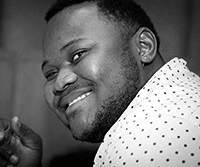 PAPY MAURICE MBWITI
PAPY MAURICE MBWITI
Saturday 4 p.m.
Actor/author/stage director/theatre director Papy Mbwiti is a socially engaged artist whose texts, plays and actions tackle the issues of citizenship and the restriction of human rights and free speech. His engagement came at the price of exile from his native land. For over 17 years now, he has pursued his theatre of grassroots social intervention through the Les Béjarts program, whcih promotes civic education through theatre and film. As a passionate advocate for freedom of expression, Papy considers theatre the ideal forum for democratic expression.
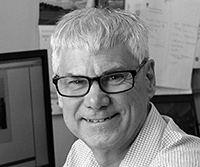 PAUL CLARKE
PAUL CLARKE
Saturday at noon
Action Réfugiés Montréal has been helping to welcome refugees in the Montreal area for over 20 years. Our presentation will cover the issues faced by asylum seekers, sponsored refugees and persons without status. We will propose practical ways in which Quebecers can help in efforts to assist refugees with their arrival and integration.
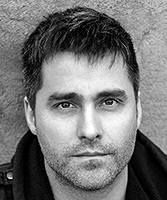 PHILIPPE DUCROS
PHILIPPE DUCROS
Friday 7:30pm and Saturday 3pm
In 2004, I was a writer-in-residence in Alep, Syria. Ah, how beautiful it all was back then... I wished to write about Palestine and its occupation. Then my life was turned upside down. In a way that would bring me back to the Near East six times: to Palestine, to Israel, to Lebanon, to Syria. And the countless Palestinian refugee camps... It brought me to Ethiopia; to the Kebribeyah refugee camp in Somalia; to the Democratic Republic of Congo's Mugunga 3 camp for internally displaced persons. It is about these places on the margins of civilization that I wish to speak to you, these crumbs left behind by war... And about the links we have with them, as citizens of Canada, or by way of the United Nations. I wish to have a friendly conversation about it, touching on certain texts I wrote while over there and on certain photos I took.
Update: With friends, I am sponsoring a family of Syrian refugees, the Maksoud family. You can help us out by giving anything you can. To find out more: https://www.gofundme.com/ensemble-pour-la-famille-maksoud
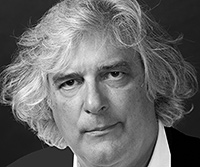 PIERRE JASMIN
PIERRE JASMIN
Saturday 9 p.m.
A pianist and an honorary professor at Université du Québec à Montréal, Pierre Jasmin sits on the executive committees of Pugwash Canada and Les Artistes pour la Paix, as well as on the board of directors of the Canadian Network to Abolish Nuclear Arms. He writes a quasi-weekly column for L'Aut’Journal. He will discuss the following topics with the public in attendance: Why not make international aid and the United Nations our top priorities, rather than national defence and NATO?
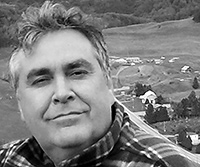 Sylvain Thibault
Sylvain Thibault
Saturday 11 a.m.
Sylvain Thibault is in charge of the Syrian file at the Table de concertation des organismes au service des personnes réfugiées et immigrantes (TCRI), a council of organizations serving refugees and immigrants.
The roundtable Sylvain is chairing will discuss the sponsoring of refugees from the perspective of both the sponsor and the person(s) being sponsored. The influx of Syrian refugees in Québec has triggered an outpouring of generosity. Many Quebecers have voluntarily reached out and sponsored people who up to that point had been complete strangers to them. Beyond the numbers and the procedures, the roundtable will examine this manifestation of solidarity from both sides of the relationship.
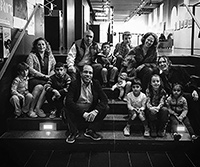 SINGA
SINGA
Sunday 7:30pm
Founded in September 2015 by Jasmine Van Deventer, SINGA Québec is part of an international citizen's movement whose mission is to build bridges between refugees and their host societies.
Headquartered in Montreal, we work to develop opportunities for encounter and dialogue between refugees living in Québec and Québec civil society, based on sports, cultural activities, entrepreneurial projects, and accommodations.
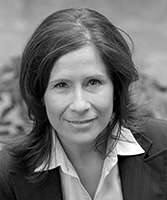 VÉRONIQUE HARVEY
VÉRONIQUE HARVEY
Friday 6:30pm and Saturday 5:30pm
(MSc, LMSW, Psychotherapist)
Véronique Harvey is a social worker, psychotherapist, trainer and speaker specializing in intercultural issues and trauma. She holds a Master of Social Work from NYU, a degree in psychotherapy from the State of New York, and a psychotherapist permit from the Ordre des psychologues du Québec. From 2007 to 2010, she worked as African Community Counsellor at Sanctuary for Families, a New York–based non-profit organization supporting victims of domestic violence, including immigrant women. She returned to Montreal in 2010, working as a psychotherapist with the Adult Mental Health team of the CLSC Sud-Ouest–Verdun. Véronique now works for RIVO (Réseau d'intervention auprès des personnes ayant subi la violence organisée), where she supports victims of organized violence, such as refugees.
Workshop: Trauma and Reconstruction : Véronique Harvey explains the impact of human violence—war, torture, terrorism, genocide—and the services available to refugees in need of psychological support.
